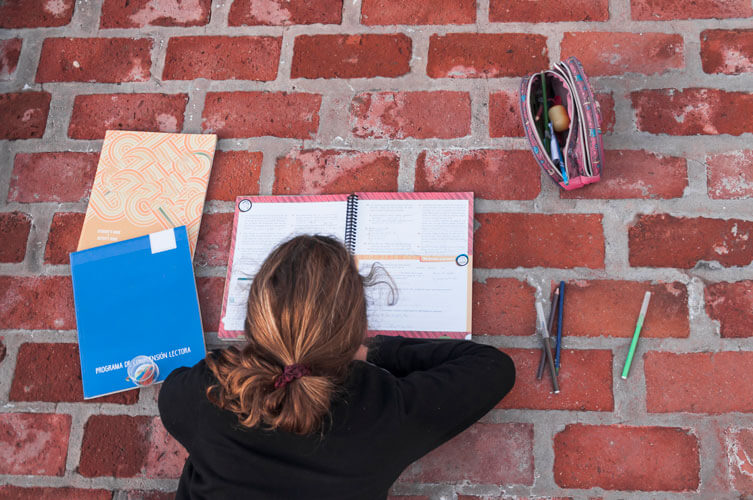Graduating from high school is a significant milestone, marking the culmination of years of hard work, dedication, and perseverance. It is more than a symbolic achievement—it’s the foundation of your future, offering immediate benefits like higher earning potential and access to further education. Earning a high school diploma equips you with the credentials and skills needed to thrive in today’s competitive world.
Beyond these immediate advantages, high school graduation delivers long-lasting benefits that impact every aspect of your life. It contributes to career stability, financial independence, and even better health outcomes, while positioning you as a role model for future generations. The importance of graduating high school extends well beyond academics—it’s about empowering yourself to build a successful and fulfilling life.
If you’re ready to take the next step toward a brighter future, the Rose Academies is here to guide you. Contact us today to learn how we can support you in achieving your educational goals and unlocking your full potential!
The Long-Term Impact of High School Graduation on Your Life & Career
Graduating high school is not just about earning a diploma—it’s a crucial investment in your future that pays dividends throughout your life. The importance of graduating high school extends far beyond the classroom, influencing your career opportunities, financial stability, and overall quality of life.
High school graduates often enjoy greater job security, higher earning potential, and better access to higher education and training programs, allowing them to pursue fulfilling careers and achieve lasting success. Moreover, the skills and discipline gained during high school contribute to personal growth, healthier lifestyle choices, and the ability to make a positive impact in your community.
Key Reasons Why Graduating High School Matter
Graduating high school is a critical step toward a successful future, offering better job opportunities, higher earning potential, and increased access to further education. It also builds essential life skills like discipline, critical thinking, and problem-solving, setting you up for long-term success.
Further Your Education
Graduating high school opens the door to a wide range of further education opportunities that often require a high school diploma as a baseline. Whether you choose to pursue college, vocational training, or specialized programs, a high school diploma provides the foundation for acquiring the knowledge, skills, and credentials needed to excel in various fields.
Higher education can significantly enhance your career prospects, offering greater job opportunities and advancement potential throughout your life, while also equipping you with valuable expertise to navigate an ever-evolving job market.
Increased Job Opportunities
A high school diploma is often a key requirement for many entry-level positions, serving as a basic qualification for a wide range of jobs. Graduates are more likely to be considered for these roles and have a distinct advantage over those without a diploma. Employers not only value the academic foundation that comes with graduation but also the discipline, commitment, and problem-solving skills high school graduates demonstrate, which can lead to greater opportunities for career growth and long-term success.
Boosted Earning Potential
Studies consistently show that individuals with a high school diploma earn higher wages and enjoy greater earning potential than those without. Graduates are in a better position to secure higher-paying jobs, access benefits, and benefit from opportunities for career advancement. This often translates to long-term financial stability and greater independence, setting the foundation for a secure and successful future.
Positive Health Outcomes
Research shows a clear connection between educational attainment and overall health. High school graduates are more likely to lead healthier lifestyles, experience lower rates of chronic illness, and enjoy longer, more fulfilling lives. Education empowers individuals with the knowledge and skills to make informed choices about their health, access the right healthcare resources, and adopt healthier behaviors, ultimately contributing to improved well-being and quality of life.
Set An Example for Future Generations
Graduating high school sets a powerful example for future generations, motivating siblings, children, and community members to pursue their own educational goals and strive for success. By showcasing the importance of education, as well as the rewards of hard work and perseverance, graduates can inspire those around them, creating a ripple effect that positively influences others and contributes to the prosperity of their communities.
Making The Most of Your High School Education
To truly maximize the value of your high school education, it’s essential to stay focused, set goals, and actively engage in the learning process. Graduating high school is a crucial step, but making the most of it means taking full advantage of the opportunities available to you. By focusing on academic excellence and personal growth, you’ll set yourself up for success, not only in high school but also in your future career and education.
Setting Goals & Staying Motivated
Setting clear, achievable goals is one of the most effective ways to ensure you stay on track toward graduating high school and reaching your potential. Whether you’re aiming for academic excellence, excelling in extracurricular activities, or planning for higher education, establishing specific goals keeps you motivated.
Break larger goals into smaller, actionable steps, and stay consistent in your efforts. Staying motivated throughout your high school years is key to maintaining focus and making the most of your education, setting a strong foundation for your future.
Leveraging School Resources for Success
High schools offer a wealth of resources that can help you achieve your goals and enhance your education. From tutoring services and academic counseling to extracurricular clubs and career guidance, these resources can provide the support you need to excel. Don’t be afraid to seek help when needed, whether it’s for academic challenges or career advice.
By fully utilizing school resources, you gain valuable skills, knowledge, and insights that will empower you to graduate high school with confidence and readiness for the next steps in your educational and professional journey.
Graduation Isn’t As Far Away As It Seems: See How Rose Can Support Your Academic Future
Graduating high school may feel like a distant goal, but with the right support and guidance, it’s closer than you think! At the Rose Academies, we understand that every student’s path is unique, which is why we offer a personalized approach to education. Whether you’re struggling to stay motivated or simply want a more flexible learning environment, the Rose Academies can help you stay on track and succeed. With small class sizes, dedicated teachers, and a supportive community, we provide the tools and resources you need to reach your goals and graduate with confidence.
By choosing a charter high school like Rose Academies, you’re investing in a future where academic excellence, individualized attention, and personal growth are at the forefront. We’re committed to helping you unlock your full potential, guiding you every step of the way as you prepare for a bright future filled with opportunities. At Rose Academies, graduation is just the beginning—your future success starts here.
Achieve Your Educational Goals with the Rose Academies!
High school graduation is not just a milestone—it’s a critical stepping stone toward a successful career and fulfilling life. Whether you’re looking to pursue further education, advance your career, or make a positive impact in your community, the Rose Academies are here to help you achieve your goals. With a personalized approach to education, we provide the support and resources you need to thrive academically and beyond.
Start your journey toward a brighter future today and see how the transformative power of education at the Rose Academies can open doors to endless opportunities. Contact us today to learn how we can help you unlock your full potential!








